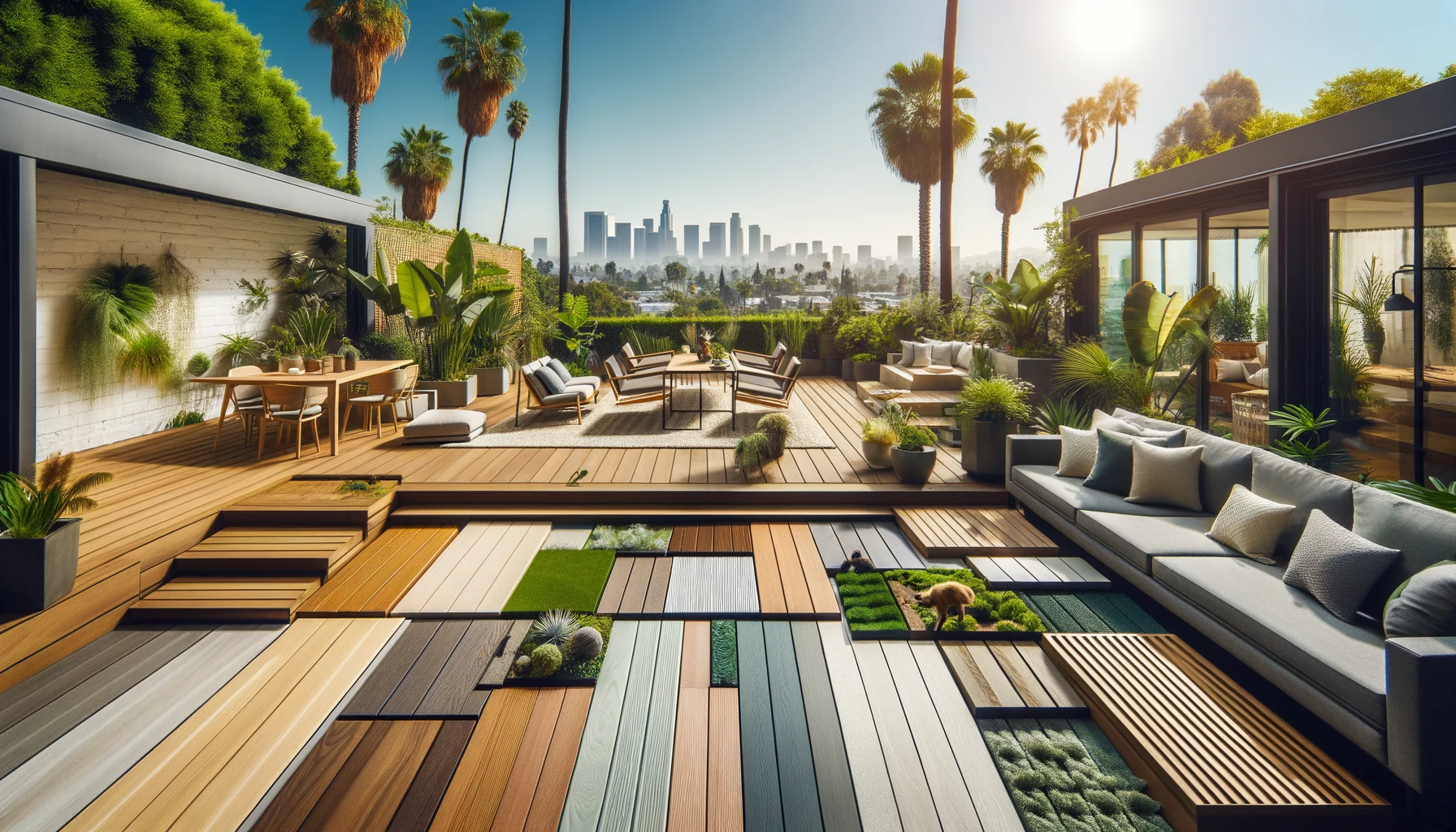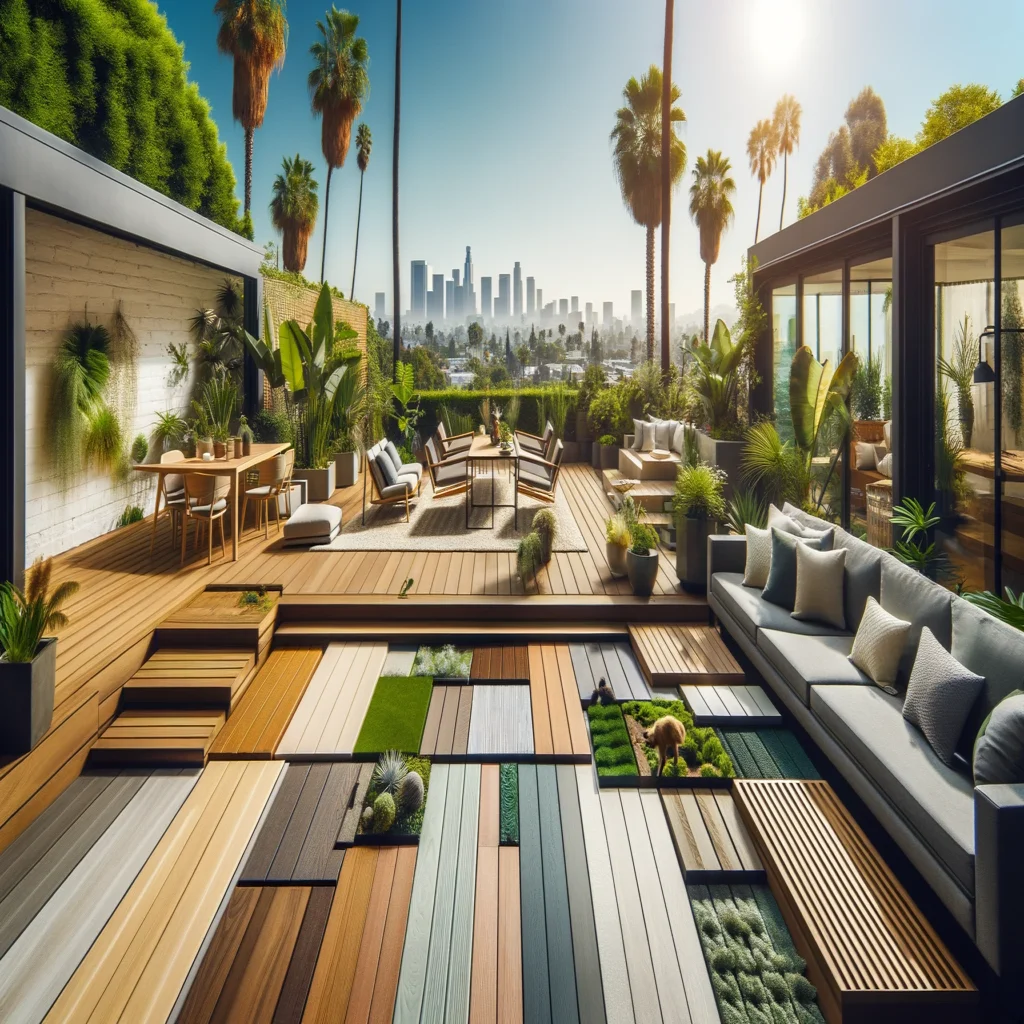
The Ultimate Guide to Choosing Materials for Your Deck Remodel in LA
Remodeling your deck is a significant investment that can transform your outdoor living space into a serene oasis, a vibrant entertaining area, or a functional outdoor room in Los Angeles. Given the city’s unique climate—ranging from sunny and dry to occasional rainy spells—choosing the right decking material is crucial for longevity, aesthetics, and functionality. Let’s dive into the most popular decking materials, comparing their benefits and drawbacks to help you make the best choice for your Los Angeles home.
Traditional Wood
Benefits:
- Natural Beauty: Wood decking, such as redwood, cedar, and pressure-treated pine, offers a classic, warm aesthetic that complements almost any outdoor setting.
- Variety: Available in various species, each with unique grains and colors, allowing for customization.
- Cost-Effective: Initially, natural wood can be more affordable than composite or aluminum options.
Drawbacks:
- Maintenance: Wood decks require regular maintenance, including staining, sealing, and sanding, to protect against the elements and prevent warping or splintering.
- Durability Concerns: In Los Angeles’ climate, wood is susceptible to sun damage, rot, and termite infestation, potentially leading to higher long-term costs for repair and replacement.
Composite Decking
Benefits:
- Durability: Made from a blend of wood fibers and plastics, composite decking is designed to resist fading, staining, scratching, and mold, making it a durable option for the LA climate.
- Low Maintenance: Unlike wood, composite decks require minimal upkeep—no need for staining, sealing, or sanding.
- Sustainability: Many composite materials are made from recycled plastics and wood fibers, appealing to environmentally conscious homeowners.
Drawbacks:
- Cost: Composite decking usually comes with a higher upfront cost compared to traditional wood.
- Heat Retention: In direct sunlight, composite materials can become hot to the touch, a consideration for sun-drenched Los Angeles homes.
Aluminum Decking
Benefits:
- Superior Durability: Aluminum decking outperforms both wood and composite in durability, with excellent resistance to weathering, decay, and insect damage.
- Fire Resistance: A crucial consideration in fire-prone areas, aluminum decking is non-combustible.
- Low Maintenance: It doesn’t require the regular upkeep that wood demands; occasional cleaning is typically all that’s needed.
Drawbacks:
- Cost: Aluminum decking is often the most expensive option upfront, but its longevity can offset the initial investment over time.
- Aesthetic: While modern aluminum decking comes in various finishes, some homeowners may prefer the natural look and feel of wood.
Other Considerations
When choosing your decking material, consider the following additional factors:
- Aesthetics vs. Durability: Decide what’s more important for your project. While wood offers natural beauty, composites and aluminum provide superior durability and lower maintenance.
- Climate Suitability: Los Angeles’ climate demands materials that can withstand sun exposure and occasional moisture without significant wear.
- Long-term Costs: Consider not only the upfront cost but also the long-term maintenance or replacement costs associated with your chosen material.
Your deck is an extension of your Los Angeles home, and the material you choose plays a crucial role in its appearance, durability, and maintenance needs. Whether you prioritize the natural beauty of wood, the durability and low maintenance of composite, or the unmatched longevity of aluminum, make sure your choice aligns with your lifestyle, budget, and the unique climate challenges of Los Angeles. With the right material, your remodeled deck will provide years of enjoyment and add significant value to your home.

